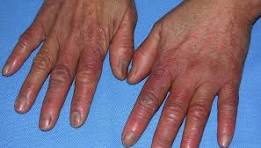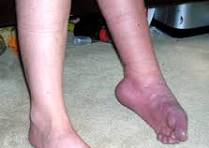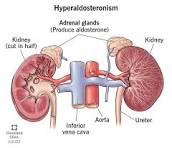INTRODUCTION
Health is wealth—a simple yet profound truth. One sickness can drain a
lifetime of savings, leaving individuals and families in distress. While modern
medicine has made remarkable strides in diagnosing and treating diseases, many
health conditions continue to defy medical solutions, pushing us to explore
alternative approaches.
Natural remedies have been a cornerstone of healing for centuries, long before
the advent of modern pharmaceuticals. Across cultures and civilizations, people
have relied on nature’s gifts—herbs, roots, fruits, and holistic practices—to
restore health and vitality. While this encyclopedia does not seek to undermine
the importance of medical science, it aims to complement it by shedding light
on time-tested natural solutions. It encourages further research into the power of
nature in healing, offering insights into remedies that have provided relief to
countless individuals.
Natural Remedies For Chilblains
Chilblains, also called pernio or perniosis, are painful skin conditions
resulting from inflammation of small blood vessels after exposure to
cold. While medical consultation is essential, certain natural remedies
may help ease symptoms like itching, inflammation, and discomfort.
These remedies should support, not replace, professional care.
1. Calendula (Marigold) Cream
How it works: Calendula is known for its anti-inflammatory and
soothing effects, helping reduce skin irritation and promote
healing.
Preparation and usage:
Apply calendula cream or ointment topically to affected areas
as needed.
Use 2–3 times daily, or according to package directions.
Where to find: Available in health food stores, natural product
retailers, or local markets.
2. Cayenne Pepper Paste
How it works: Cayenne contains capsaicin, which stimulates
blood flow and helps alleviate pain.
Preparation and usage:
Mix a pinch of cayenne pepper powder with a small amount of
water to form a paste.
Apply gently to affected skin (avoid open wounds).
Leave on for a few minutes, then rinse off thoroughly.
Where to find: Cayenne pepper powder is widely available in
grocery stores and spice markets.
3. Aloe Vera Gel
How it works: Aloe vera has cooling, anti-inflammatory, and
healing properties beneficial for irritated skin.
Preparation and usage:
Apply a generous amount of fresh or store-bought aloe vera gel
to the affected area.
Repeat 2–3 times daily for relief.
Where to find: Aloe vera leaves can be grown at home or
purchased in markets; gels are sold in pharmacies and beauty
stores.
4.Witch Hazel Compress
How it works: Witch hazel acts as a natural astringent with anti-
inflammatory properties that reduce swelling.
Preparation and usage:
Soak a clean cloth or cotton ball in witch hazel extract.
Apply it to affected skin as a compress for 15–20 minutes.
Where to find: Bottled witch hazel is available in pharmacies and
wellness shops.
5. Olive Oil Massage
How it works: Olive oil moisturizes dry skin and helps soothe
irritation through gentle massage.
Preparation and usage:
Warm a small quantity of olive oil slightly.
Massage into the affected area gently, 2–3 times daily.
Where to find: Olive oil is commonly found in supermarkets and
local grocery stores.
6. Ginger Tea (Internal Remedy)
How it works: Ginger boosts circulation and reduces
inflammation from the inside.
Preparation and usage:
Slice fresh ginger and steep in hot water for 10–15 minutes.
Drink 2–3 cups daily while still warm.
Where to find: Fresh ginger is sold in local markets; ginger tea
bags are available in most supermarkets.
7. Chamomile Tea Soak
How it works: Chamomile has anti-inflammatory and calming
properties, suitable for soothing skin discomfort.
Preparation and usage:
Brew chamomile tea and allow it to cool slightly.
Soak affected areas for 15–20 minutes, or apply warm tea bags
as compresses.
Where to find: Chamomile tea is available in tea aisles,
pharmacies, and herbal stores.
Key Consideration
These remedies can ease chilblains-related symptoms, but they do not
replace professional care. Individuals with chronic symptoms,
circulatory disorders, diabetes, or those who are pregnant or
breastfeeding should consult a healthcare provider before use. Many of
these natural remedies can be sourced from local markets, health food
stores, and pharmacies near you.



